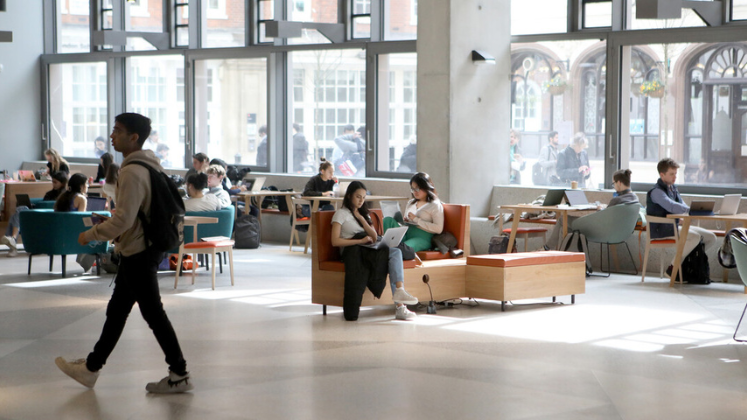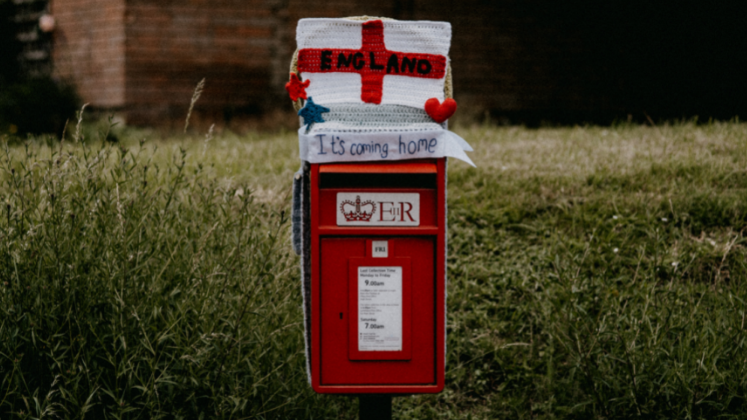
Executive MSc Behavioural Science alumni Rajeev Budhiraja writes about the Applied Behavioural Science event which took place in July 2022 and explores the key themes from the discussions.
The Applied Behavioural Science (ABS) event from 18-21 July 2022 was an exercise in learning, networking, and wellbeing. The Executive MSc in Behavioural Science cohort of 2021-22 were to graduate on 22 July, yet most of us had never met in person or been to LSE. COVID-19 and travel restrictions had forced an all-virtual 16 months, unable to step into the Shaw Library or grab a group lunch in the Senior Dining Room. We had missed out on the priceless student moments taken for granted, and so the idea to organise an event to bring everyone together to discuss the most pressing issues in behavioural science and experience LSE – in person – was born.
We sought a wide range of speakers, from practitioners and alumni to academics, from the Global South to the developed world. We were guided by the Department of Psychological and Behavioural Science motto “From the world to the lab and back again” alongside our own drive to find ways, as graduates in our own fields, to use this recently acquired knowledge in the real world. Therefore, we asked all our speakers to focus on the practical application of behavioural science principles.
The end outcome was 26 speakers over four days.
Key takeaways and themes
Lord Layard led the eminent LSE faculty representation by giving the opening address. In conversation with Chris Krekel, he argued for wellbeing as a goal of policy as opposed to Gross Domestic Product (GDP) and suggested that WELLBYs – or wellbeing years – could be used as a measure of quality and length of life.
Quality of work and mental health were identified as the top two factors impacting wellbeing and in need of special attention. The role of a business should be to increase the collective wellbeing of all stakeholders instead of the current zero-sum game where one person benefits at the cost of the other. To facilitate improved mental health, preventive methods should be applied from early childhood, with schools giving equal focus on the student’s emotional health.
Liam Delaney (Head of Department, Psychological and Behavioural Science at LSE) guided us on how to find a job in behavioural science. He felt that opportunities were increasing, and in the 21st century, jobs would be more behavioural and psychological. He identified retail finance as a unique opportunity for behavioural scientists, particularly in preference purification, as opposed to the current present bias-led thinking. This intersection of behavioural science and technology would spearhead the next round of innovation in fintech and financial services. Additionally, he suggested that the Executive MSc students had the experience of managing teams, clients, and projects, and this would create many opportunities beyond the insights teams of public and private sector organisations.
Matteo Galizzi (Department of Psychological and Behavioural Science, LSE) spoke on the ample opportunity to find solutions for the current challenges in the world by leveraging behavioural science. A significant barrier for him was the lack of reproducibility of studies. LSE had initiated an effort, which was also being followed at a UK-wide level, to establish new standards for reproducible research across all social sciences. This also needed a review of the publishing guidelines for research in academic journals to make it more efficient and transparent. Finally, he saw the increasing collaboration between behavioural science and other social sciences, such as data science, sociology etc., as a way forward for the growth of the discipline.
Dario Krpan (Department of Psychological and Behavioural Science, LSE) articulated how new technologies such as augmented reality and gamification were shaping the future in the field. The recent pandemic had significantly changed the landscape regarding e-commerce transactions, digitisation of money and concepts such as Zoom fatigue, which were all subjects that were now being studied in more detail. Most of the questions were on the metaverse, which was a good platform to test ideas that would be challenging to research on society itself. The ethics issue was also critical as technological innovation generally precedes the following legislation; thus, self-regulation and sound ethical practice in technology-driven experiments were necessary.
Scott Young, a Visiting Fellow in the Department of Psychological and Behavioural Science, joined a panel on how to pitch a Behavioural Science Unit within your organisation. He felt that a hub and spoke model might be ideal, but it would only work with C-suite support. His 3-point advice was 1) start with someone interested in behavioural science, be it the CEO or a head of a department, 2) follow the budget, which could be a business owner with an interest in behavioural science and 3) have a business conversation to exploit an opportunity or solve a problem.
Owain Service from Warwick Business School discussed his book on taking small but solid steps ‘Think Small-the surprisingly simple ways to reach big goals’, and Angel Chater from University College London travelled two hours from her home in Luton on a hot 19 July to highlight the benefits of physical activity on mental and cardiovascular health. All beneficial life lessons for us to take back. In conversation with Sakshi Ghai of Cambridge, who was in the room with us, Neela Saldanha from Yale joined us on zoom to address global inequalities such as income, gender, race, and even digital and spoke of the potential role of behavioural science in bridging these. Neela also had a particular interest in scaling interventions, particularly in the larger populations of the Global South, where 85% of the world lives.
A global perspective
There was a strong focus and representation from non-UK speakers as most of our course reading had been UK/US-centric, and we were keen to get a broader global perspective. Pavan Mamidi of Ashoka University, India, detailed a case study on improving infant nutrition of children aged 6-23 months using WhatsApp groups of 4-5 parents with conversations facilitated by trained personnel and the opportunities and challenges in effecting social change in a large country such as India. Will Mailer of CommBank, Australia, demonstrated how the bank had benefitted by following a simple maxim ‘what is good for Australia is good for the bank’ e.g., an intervention to reduce credit card debt may have reduced bank profit, but in the long run, was good for the Australian consumer and thus for the bank. Efrat Aharanov from Clalit (a not-for-profit that provides free healthcare for over 50 per cent of the Israeli residents) demonstrated how an experiment using nine different reminder SMS messages resulted in lower no-show rates in out-patient clinics, which were then running at 25 per cent. An AI-based reminder personalisation engine provided a personalised reminder to each patient and reduced no-show rates by a further 6 per cent. Fadi Makki and Nabil Saleh from Nudge Lebanon outlined how an intervention with a UN agency improved Covid-19 vaccine uptake in Lebanon’s underprivileged and vulnerable refugee population. Fadi Makki also represented B4Development in Qatar, which he founded, where a study focused on reducing littering and increasing recycling in football stadiums for the forthcoming FIFA World Cup in November 2022. This was achieved through salient floor stickers and highlighting the moral value of recycling.
A real-world focus
LSE alumna Anna Meadows from IPSOS and Will Sandbrook of NEST Insight Unit benefited us from their practical, real-world experience in panels on how to pitch units or find jobs in behavioural science. Bea Andrews exposed us to unconscious motivation (and hypnosis!) along with her business partner Daryll Scott, and Leena Shah conducted an impromptu session on gong meditation.
Getting to know each other in person
 The social agenda was a vital part of the event as we had no prior opportunity to mingle and get to know each other. Sarah Cunningham and her merry band of Londoners Ginny, Gemma, Pascale, and Erika Gallacher put together a superb array of activities. Erika got us into memorable locations, drinks at the Old Bank of England and a gala dinner at the House of Commons. These were much appreciated, particularly by the international students who got to experience some heritage London.
The social agenda was a vital part of the event as we had no prior opportunity to mingle and get to know each other. Sarah Cunningham and her merry band of Londoners Ginny, Gemma, Pascale, and Erika Gallacher put together a superb array of activities. Erika got us into memorable locations, drinks at the Old Bank of England and a gala dinner at the House of Commons. These were much appreciated, particularly by the international students who got to experience some heritage London.
ABS wove seamlessly into graduation day with families and friends joining and extended into the weekend with a picnic for families at Hyde Park. As we departed London that weekend, LSE and each of us had a slightly closer bond. Until our next reunion!
Notes:
- We decided to hold the Applied Behavioural Science (ABS) event just before our graduation. Our ever-so-supportive Programme Director Matteo Galizzi and super-efficient Therese Holmqvist approved the concept, and a group of students comprising Sarah Cunningham, Julion Gallacher, Bea Andrews, Gemma Astbury, and myself set about making it happen.
- Thanks to Liam Delaney (who put in a lot of time and effort in guiding us and supporting the event), Matteo Galizzi, Erika Gallacher (a star who made it all happen in the final lap), Therese Holmqvist, and Alexandra Krienko (who supported all our technology requirements) from PBS for supporting and making the event happen. Other shout-outs to Mary-Grace, Ilona, Jake, and Tomaso, who created the event branding. Tamar, Sarah, and Kate helped identify potential speakers and Julion, Uliana, Sarah, and Tamar effectively moderated sessions.
Find out more about our Executive MSc in Behavioural Science programme here.





Great sounding conference, topics and speakers. Can members of public come along for next years one? Did any board certified behaviour analysts speak?